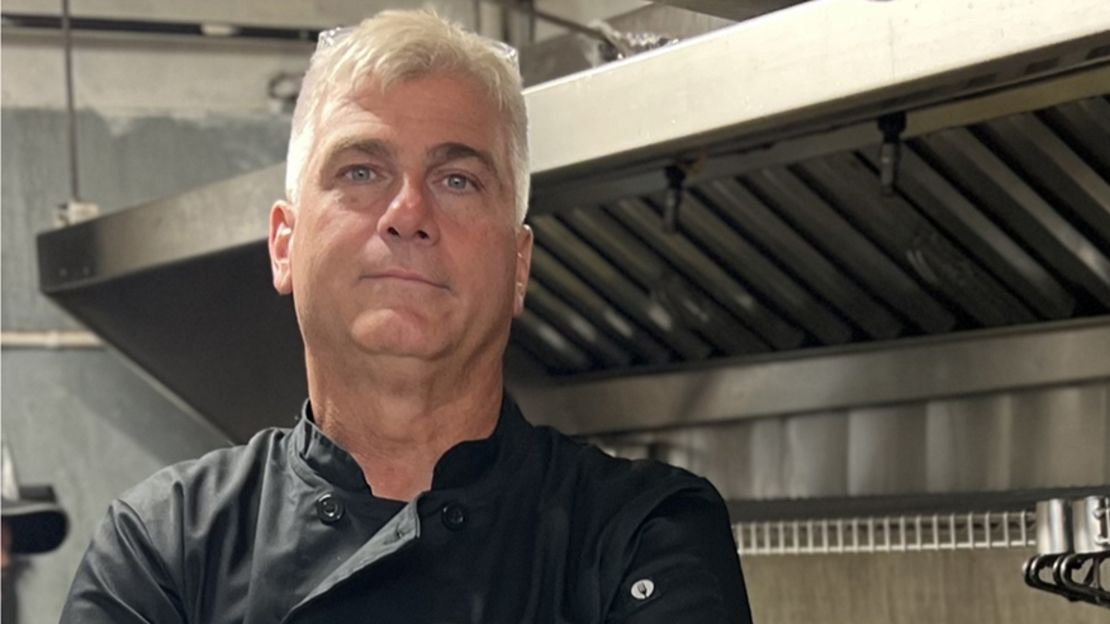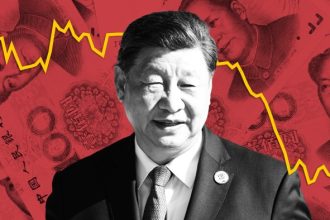Ken Rose, a restaurateur and chef in Sandy, Utah, said that though he has always paid his employees above his state’s minimum wage of $7.25 an hour, in the past few years, he’s had to bump employee pay higher than ever.
“For me, minimum wage is what you can hire an employee for,” Rose, who owns Tiburon Fine Dining, a contemporary American restaurant in Sandy told CNN. “$7.25 hasn’t been relevant for years.”
An ever-shrinking number of workers in the US are paid the federal minimum wage of $7.25 an hour – and a growing chorus of unions, economists and even employers agree it’s out of step with today’s economic reality.
Only 141,000 US workers were paid the minimum per hour in 2022, according to the Bureau of Labor Statistics. That’s down from 392,000 in 2019. And while many states have taken the initiative to increase the minimum wage into their own hands, twenty US states still only require employers to pay $7.25 an hour – or only $2.13 per hour for workers who collect tips.
Overall, the legal pay floor in the US hasn’t budged since 2009. It’s the longest period without a countrywide increase since the federal minimum wage was established in 1938. Adjusting for inflation, workers paid the legal hourly minimum in the 1960s and 70s were higher paid compared to today, according to the nonprofit think tank, the Economic Policy Institute.
However, despite numerous efforts, raising the federal minimum wage above $7.25 an hour has been unsuccessful.
Michael Reich, the chair of the Center on Wage and Employment Dynamics at the University of California at Berkeley, told CNN the failed attempts to raise the minimum wage may be partially chalked up to growing polarization in American politics.
Most recently, in 2021, the Senate rejected a bid by Democrats to increase the federal minimum wage to $15 an hour by 2025 as part of President Biden’s $1.9 trillion stimulus plan.
In July, Senate Democrats introduced a new plan to raise the minimum wage to $17 by 2028, but so far, nothing has passed.
“If you leave it to the employer, they can raise wages and they can lower them, as long as it’s not below the minimum wage law,” Yannet Lathrop, a senior researcher and policy analyst at the National Employment Law Project said.
Even though fewer workers are paid $7.25 an hour than in years past, raising the minimum to $17 an hour – or even $15 an hour – would boost pay for millions of workers who may be paid more than $7.25 but still below $15 or $17, Lathrop said.
According to EPI’s Low Wage Workforce Tracker, 22% of all workers in the US are paid less than $17 an hour, and 12% are paid less than $15 an hour.
The vast majority of those who earn the minimum wage or less work in food preparation or food service, according to BLS figures. But those employers in the food service industry say a tight labor pool over the last few years has forced them to raise wages for even their lowest-paid workers, rendering the minimum wage irrelevant.
Still, as wage gains slow and unemployment slowly ticks up, some experts warn that jobs may not be as plentiful in an economic downturn, and an increase to the US minimum wage is necessary to protect growth in pay made in the last few years.
In many ways, the federal minimum wage seems like a relic of the past.
Unionized workers across the US, from auto workers to hotel workers, have all gone on strike recently. Many share a common grievance: that their pay hasn’t kept up with the rising cost of living.
Yet, their pay far exceeds the minimum wage. The lowest hourly wage for a United Auto Workers union member is $18 per hour. Meanwhile, many of the United States’ largest employers, like Amazon, Walmart, Costco, and Starbucks, have all begun to pay their workers a minimum wage of $15 or higher.
Rose operates his business in Utah, one of twenty US states that have not increased the legal minimum wage above $7.25.
While he pays his tipped servers an hourly wage of $3.50, Rose said that they can make closer to $20 to $30 per hour once tips are factored. For back-of-the-house employees, like dishwashers and kitchen staff, Rose said he can’t entice new employees unless he pays at least $16 per hour.
Rose said his businesses aren’t the only ones paying above minimum wage in his home city, though.
“This is across the board, including the signs that you see on McDonald’s and ‘now hiring’ signs and all the other things,” he said. “I believe the real minimum wage is at least $15 per hour, probably closer to $17 or $18.”

Joe Bishop, owner of Bungalow Joe’s, a sports bar and pub, in Louisville, Kentucky, another state that abides by the federal minimum wage, also said he doesn’t know of any restaurant in his city that pays $7.25 per hour.
“There’s too much competition out there to pay $7.25 an hour,” Bishop said. The unemployment rate in Louisville-Jefferson County, Kentucky, is currently 3.7%, but it was below 3% for multiple months in 2022 and early 2023, according to government data.
“If you advertise $7.25 an hour, you would not get one application,” he added.
The actual economic impact of a federal minimum wage increase is heavily debated. Opponents argue that raising the legal pay floor could result in job losses and do more harm than good.
A Congressional Budget Office study of the 2021 bill found that raising the minimum wage to $15 per hour by 2027 would lift millions out of poverty. But the CBO also calculated a downside: some low-wage workers could become jobless as business owners hired fewer workers due to rising labor costs.
However, newer research has shown that a higher minimum wage may have the opposite effect and stem job losses.
Reich recently authored a paper analyzing fast food workers at McDonald’s locations in 47 US counties that raised minimum wages to $15 or more. The report found that a large wage increase from $7.25 to $15 caused greater employment gains, with fewer workers quitting their jobs.
“The new conventional wisdom is that at least a moderate minimum wage increase has minimal effects on employment,” Reich told CNN. “But this new paper says that a really big minimum wage increase actually increases employment.”
Read the full article here





